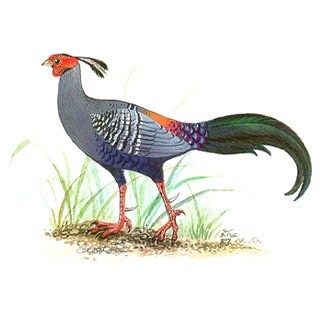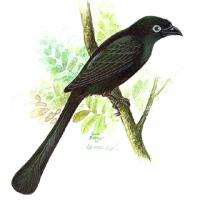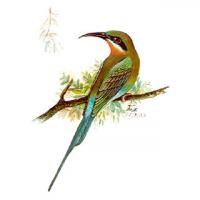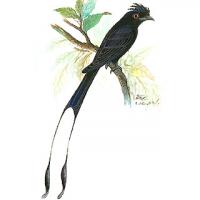Large-tailed Nightjar (Caprimulgus macrurus)
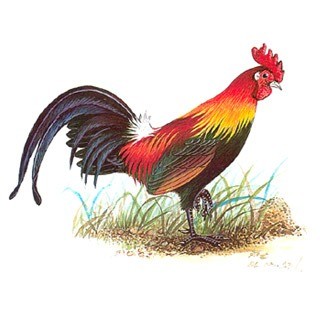
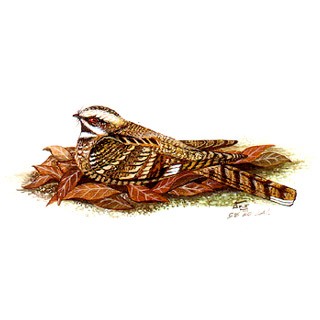
Order: CAPRIMULGIFORMES
Family: CAPRIMULGIDAE Nightjars
Scientific name: Caprimulgus macrurus
English name: Large-tailed Nightjar
Characteristic: Size 30 cm. Easily recognized by having long tail; narrow and slender wings; wide, short gape and weak, small legs. General body plumage greyish brown; crown distinctly pale with a mid-central dark line; throat white; scapulars striped with black. In flight conspicuous white wing and two tail patches can be seen.
Distribution: Pakistan, India, Southwest Chian, Hainan, Southeast Asia, the Andamans, the Greater Sundas, to northern Australia.
Habitat: Found in dry dipterocarp forest, mixed deciduous forest, dry evergreen forest, hill evergreen forest, open grounds, throughout the country, from the plain up to the 2,000 m. altitude. It dwells both in the dry evergreen and dry dipterocarp forests in Sakaerat area.
Habit: Normally encountered singly or in pairs. Nocturnal and insectivorous in feeding habit. It stays on the ground or on dry branch watching for flying preys which when detected it will sally after and catch with its beak. The daylight hours are spent resting on the tree or on the forest floor; usually under the shades of tree or grass tussock. At night, it always utters its characteristic call continuously through the night. Breeding time is from March to May, when 2 eggs will be laid on the ground; the incubation period is 16-20 days.
Status: It is a resident bird; common in Sakaerat forest. Already being protected as a protected wild animal.









